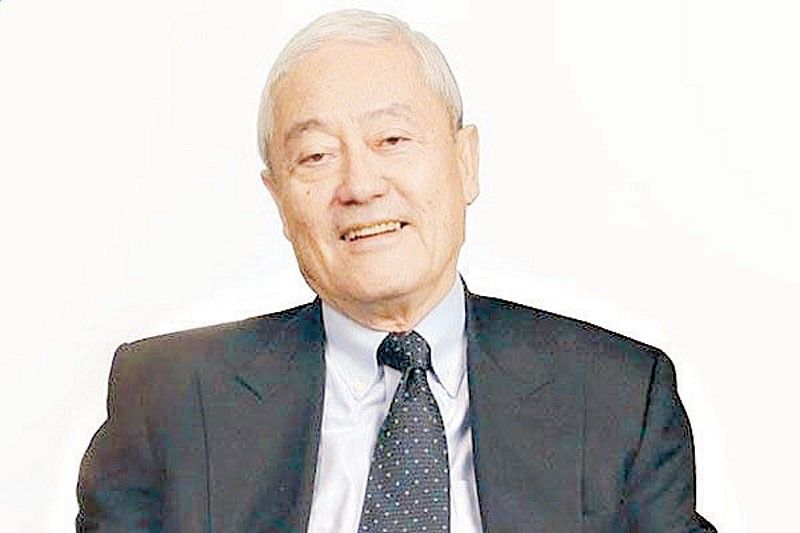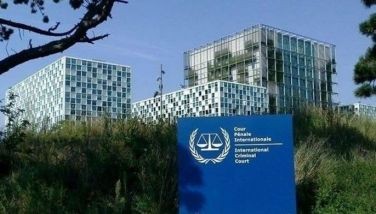Billionaire, former trade minister Roberto Ongpin, 86

MANILA, Philippines — Tycoon, former trade minister, Harvard-trained businessman, empire builder and deal maker extraordinaire Roberto V. Ongpin – fondly called “RVO” – died in his sleep last Saturday night, cradled in the arms of his beloved Balesin island, the world-class paradise he built in Quezon. He was 86.
Ongpin’s death marks the end of an era – of a long, storied, colorful and at times controversial life that was closely intertwined with the fate and destiny of the country and the different presidents who ruled it — from the late Ferdinand Marcos Sr. to Rodrigo Duterte.
Ongpin, known for both his brilliance and guts, was successful both in business and government.
He was a cum laude graduate from the Ateneo de Manila, where he studied Business Administration, and a Masters in Business Administration graduate from the Harvard Business School.
In 1979, at the age of 42, he became the country’s youngest commerce and industry minister. handpicked by Marcos to join his Cabinet after a successful stint as managing partner of Sycip Gorres & Velayo, which he led to become Asia’s largest accounting firm.
As trade minister from 1979 to the 1986 EDSA People Power Revolution, Ongpin had to grapple with a deteriorating economy and a shortage in dollars as the country could not borrow from lending agencies.
At his young age then, he had to personally negotiate financing for the Philippines with world leaders, finding himself face to face with Brunei’s Sultan Hassanal Bolkiah, Malaysia’s Prime Minister Mahathir Mohamad, Singapore’s Prime Minister Lee Kuan Yew and Iraq President Saddam Hussein.
Ongpin was especially known for organizing the so-called Binondo Central Bank (BCB) in November 1983, when the country was experiencing a debt crisis following the assassination of former senator Benigno Aquino Jr.
It was a parallel central bank, mandated to close the gap between the dollar’s official guiding rate and the black market rate.
At the time, financial institutions and banks were experiencing scarce foreign reserves, making it difficult for the country to pay for its imports — from medicines to oil.
Years later, in 2011, in an interview with The STAR’s Business Editor Marianne Go, Ongpin explained why he had to crack the whip on foreign exchange traders.
“We were in a situation where there was no confidence in the economy, so we were exporting and keeping the dollars overseas. So the only logical solution then was fear and intimidation... So every day this was the buying rate and this was the selling rate,” Ongpin said.
Former central bank monetary board member Cesar Buenaventura praised Ongpin for organizing the BCB.
“I will never forget how well he ran the Binondo Central Bank. I was a personal witness to it,” Buenaventura said.
After leaving the government, Ongpin built and rebuilt empires, including deals that brought the Shangri-La Group into the Philippines, Tagaytay Highlands, PhilWeb Corp. and culminating in Alphaland Corp., where he built his crown jewel, Alphaland Balesin Island Club, according to his nephew Rafael “Apa” Ongpin.
Whether in business or in government, however, Ongpin’s life was not without controversies.
For a time, he had a falling out with the London-headquartered Ashmore, his then partner in upscale property developer Alphaland.
In 2016, when then mayor Duterte became president, one of his first acts was to “destroy the oligarchs” and he wasted no time in publicly lashing at them, starting with Ongpin.
Duterte cited Ongpin as “one of the oligarchs who have connections with the government.”
“The plan really is to destroy the oligarchs that are embedded in the government,” Duterte said then.
“I’ll give you an example, Ongpin, Roberto. He was influential during the time of (Ferdinand) Marcos (Sr.), trade minister, I think. He remained influential despite the succession. During the time of (Fidel) Ramos, he was a hanger on as well as during the time of Gloria (Arroyo) and P-Noy (Benigno Aquino III). Now, he owns (an) online (gambling firm),” he added.
Ongpin was forced to sell PhilWeb Corp., his listed gaming company.
Before that, in 2009, he faced an insider trading case filed against him by the Securities and Exchange Commission in relation to his purchase of Philex Mining shares that year.
The courts eventually dismissed the case against Ongpin.
In December 2021, Ongpin again made headlines because his son Julian was a person of interest in the death of artist Bree Jonson. The Philippine National Police eventually cleared Julian of any involvement in the incident.
Ongpin is survived by his wife Monica Arellano; their children Stephen, Anna, Michelle and Julian; and four grandchildren, two of whom he got to play with before he went to sleep last night, nephew Apa said.
“He never retired and remained sharp and undiminished by age… He refused to publicize it, but since 1988, he has funded thousands of full scholarships to Ateneo de Manila University in the name of his brother Jaime, who passed away in 1987,” Apa added.
Jaime Ongpin, more popularly known as “JVO,” was the finance minister of the late former president Corazon Aquino.
Dennis Valdes, another nephew, said Ongpin was on “build mode all the way to the end.”
In the end, RVO is many things to many people, but he is most remembered as the brilliant Marcos technocrat who helped steer the economy out of the doldrums by reining in traders who were taking advantage of the economic situation at the time.
“He was brilliant, brutally frank and fearless,” Buenvantura, RVO’s friend, said.
For RVO, however, he only has two claims to fame, as he told Go in the 2011 interview:
“One is I am the only one I know who has met Saddam Hussein three times. The other ... is Anna Nicole Smith. I have known her since she was 18,” Ongpin said.
- Latest
- Trending



























